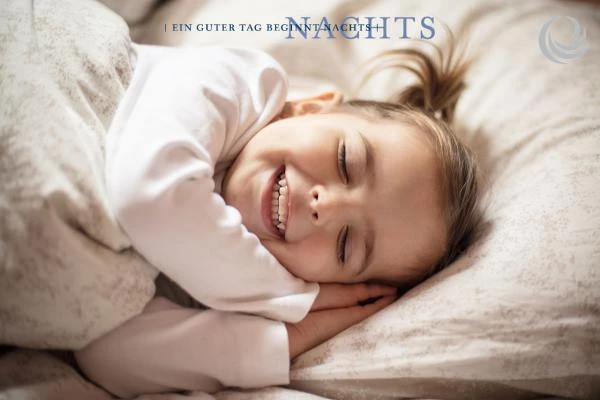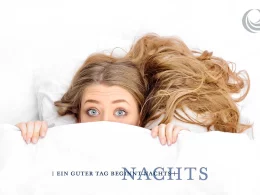Laughter is healthy. It lowers blood pressure and has beneficial effects on the heart and circulation. Therefore, if possible, we should laugh as often as possible and preferably from the heart. But did you know that there are many people who also laugh while sleeping? Where does this phenomenon come from and when does it occur? Is laughing while sleeping possibly dangerous? You can find out all this here at billerbeck, your experts on the subject of sleep.
What does laughter during sleep mean?
Parents in particular will be familiar with the phenomenon of nocturnal laughter during the sleep of their babies and children. Not only do they laugh many times more often during the day than adults, they also burst out laughing more often during sleep. Whether short giggles or loud laughter, several times in a row or only once a night, in principle the phenomenon of hypnogely – as laughing while sleeping is called in English among experts – can occur in anyone.
When do we laugh in our sleep?
In this context, nocturnal laughter is usually restricted exclusively to a specific part of our night’s rest: the phase of REM sleep. This is characterized by decreased body tension, while the heart rate increases slightly and our eyes move back and forth rapidly. REM sleep is also called dream sleep, because during these sleep sequences we dream. It is the sleep phase in which some people unconsciously make vocal utterances such as talking or laughing without being aware of it the next day.
Why do babies laugh in their sleep?
Whether baby, toddler or adult, we all process the events of the day, learn and regenerate body and mind for the challenges of the next day during sleep. Particularly in infants and children, who for developmental reasons absorb experiences largely unfiltered, this processing during sleep manifests itself in intensive dreaming, body movements and a variety of vocalizations. Many children scream, cry, babble or kick in their sleep, only to burst into loud laughter the next moment – all of this happens quite unconsciously, without the children waking up.
The fact that a child laughs more often during sleep than adults can also have other reasons. Babies and children enter the REM sleep phase much more frequently during the course of a night than adults. So they dream more and therefore it can happen more often that they make sounds and laugh in their sleep. Accidentally misdirected stimuli in the brain can also trigger nocturnal talking and laughing. Children and especially babies are highly susceptible here due to their developmentally immature brain, which may also be responsible for the more frequent laughter during sleep.
Is laughing while sleeping dangerous?
Sleep laughter – like talking in sleep – belongs to the parasomnias. This refers to conspicuous behavior that occurs during sleep and disturbs it, but which is not consciously perceived by the affected person. It is much more likely to be partners or others sleeping in the room who hear the laughter in their sleep and tell the sufferer about it the next day. The list of parasomnias is long and includes sleep disorders of various kinds, most of which are usually harmless and do not require further treatment – including nocturnal laughter.
What can you do about laughing in your sleep?
However, if it disturbs the sleep of others, it may well be appropriate to take action. Good sleep hygiene with regular bedtimes, light meals before sleep, and avoidance of alcohol, caffeine, and nicotine can be helpful. Likewise, a relaxing meditation in the evening, bedding adapted to individual needs, a pleasant room temperature and a comfortable atmosphere in the bedroom.














